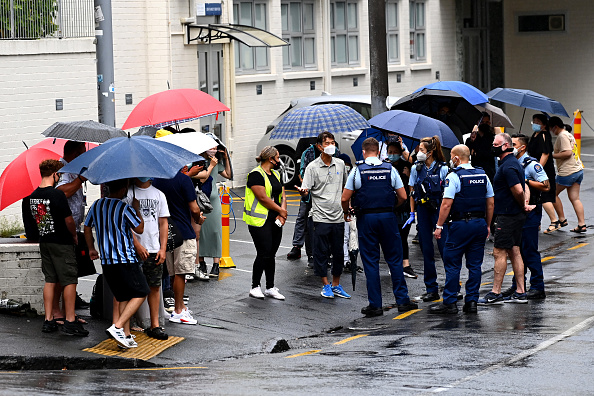The Ministry of Health is today reporting 56,788 COVID-19 vaccination boosters were administered yesterday – the highest number in one day so far.
Similarly, yesterday was a record for paediatric doses administered, it said, with 14,400 children receiving a vaccination dose. Close to 95,000 5-to-11-year-olds have now received a first dose.
The number of first and second doses in the 12+ population also saw notable increases on previous days.
“It is encouraging people continue to come forward to get their first or second dose of the COVID-19 vaccine,” the Ministry said in a statement.
“Boosters lower your chances of COVID-19, including the Omicron variant, of getting very sick and being hospitalised, and help to slow the spread of the virus. If you’re 18 or older and it’s been 4 months since your second vaccine dose, get your booster as soon as you can.”
Meanwhile, public health officials are continuing to manage Omicron cases in the community through rapidly isolating cases and contacts, contact tracing, and testing in order to slow the spread, the Ministry said.
“To date, there are 29 community cases of COVID-19 associated with the January Omicron Cluster, all are in isolation.”
“Amongst these cases, today we are reporting an additional 10 community cases. These include one case in Nelson Tasman that is a household contact of a previously reported case and was already isolating when they tested positive; one case in Palmerston North that is a household contact of a previously reported case and was already isolating when they tested positive; two cases in Tauranga. Both cases are in the same household and are isolating at home. Case investigations are ongoing but, at this stage, there are a limited number of exposure events associated with these cases.”
It said all six cases identified in Auckland have now been linked, directly or indirectly, to a family event and other associated events in Auckland on the weekend of 15 and 16 January.
“The number of cases and contacts are expected to grow given the highly transmissible nature of Omicron and as we learn more from case interviews.”
“In addition, the Ministry wants to thank the Nelson-Tasman family associated with this cluster for coming forward and getting tested when they became symptomatic. Their cooperation has been instrumental in identifying locations of interests, additional contacts, and cases, all of which helps slow the spread of Omicron in our communities. At this stage, it is believed the family became infected while in Auckland, not in the Nelson-Tasman region.”
It says a case from the January Omicron cluster also attended a second private event in Auckland during their infectious period.
The exposure occurred on the evening of (Sunday) 16 January at the Pukekohe Indian Hall in Auckland. More detail can be found on Ministry of Health Locations of Interest.
“Auckland Regional Public Health Service believe a large number of people attended this event. Anyone at this location at the relevant times is asked to get tested immediately, and self-isolate until a negative result has been returned,” the Ministry said.
“Further locations of interest have been identified across Auckland and the Nelson Tasman region and will be published on the Ministry’s website as they are confirmed. We are encouraging everyone in these regions to check the locations of interest and follow the public health advice.
“There will be people from outside of these regions who may have visited those locations at the same time period, so it is important for anyone who has been in these locations over the past week to check the website and see if they are included in that time the case was there.”



